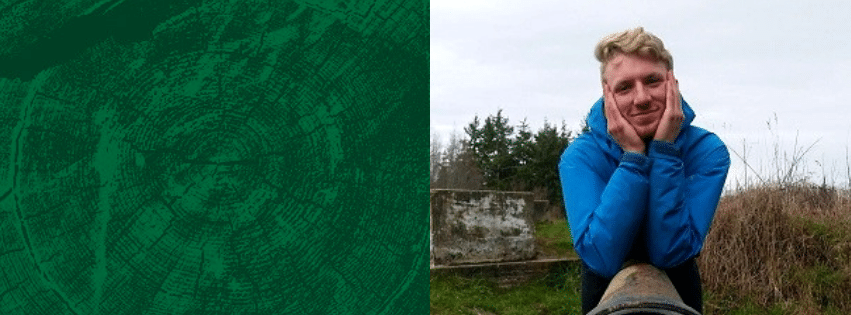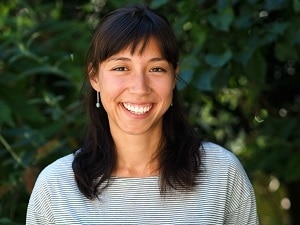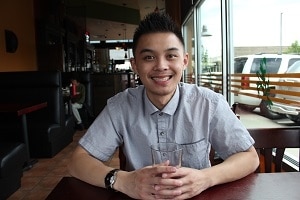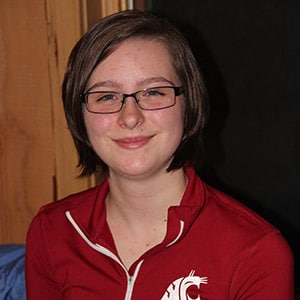If you look at the leaves of the salmonberry, a plant that thrives in the…
Author: Tamar Kupiec
The fifth graders from Crownhill Elementary in Bremerton were on a mushroom hunt. But these participants in IslandWood’s School Overnight Program were not foraging for food, nor learning to differentiate a prized porcini from the poisonous amanita muscaria. The hunt was part of a lesson on mushroom reproduction.
Carter Erickson and the members of his field group were asked to place their finds on a sheet of paper. Their instructor had explained the process in which mushrooms disperse their spores in the air to reproduce, but it wasn’t until Carter lifted his mushroom the following day and saw the spores embedded in the paper did this strange and beautiful phenomenon truly make sense.
Carter attended Western Washington University, majoring in environmental studies with an emphasis in terrestrial ecology. He is often expected to view information on a white board or lecture slide, but he believes that a deeper learning takes place out of the classroom and in the field, the way he learned at IslandWood. “I love being outside and having my toes in the dirt, my hands down in the dirt, looking at what’s going on.” After IslandWood, Carter took as many science classes as he could fit into his schedule. And “what’s going on,” he learned, is often a lot more complicated than it first appears.
A forest stream, he explains, is part of a much larger story of cause and effect. Consider a leaf lying nearby. It will decompose, adding nutrients to the soil that are then absorbed by the trees. Some of these nutrients will end up in the stream and support life elsewhere in the watershed. And if it is a pollutant instead of a leaf? Organisms downstream will suffer. These connections fascinate him as a scientist. And they guide him as a steward. He is now taking a class on the ethics of care, which emphasizes the interdependence of people and organisms and asks that we care for ourselves and our immediate environment as a means of caring for the planet as a whole.
As a boy, Carter and a friend used to play in the woods behind his house. They had big ideas and the time to carry them out: They developed a system of trails with bridges across a stream. They dammed the stream, creating what was in their minds a full-fledged lake and built little houses on its shores. His parents, who are both teachers, encouraged this love of nature. In the summers, they took the family on the road, driving to Fairbanks, Alaska, one summer, North and South Dakota another, and camping along the way. Carter was excited to come to IslandWood where he saw an opportunity to learn about nature—to study what had been primarily a place to play.
Carter’s been to IslandWood three times: once as a fifth-grader and two more times in high school as a chaperon for his mother’s classes. So he sees IslandWood both as a boy and as a wiser, more reflective teen. His first memories are marked by childlike wonder and a ready embrace of anything fun. He remembers the glorious feeling of being “out there all together” on the floating classroom in Mac’s Pond. And he remembers standing on the suspension bridge “up there in the tree canopy looking out at the same level that a squirrel or bird would be.” His favorite place on campus, however, was a little less far-flung—the meadow outside the dining hall. The older Carter was interested in architecture, and he appreciated how the covered walkway that borders the meadow brought “the outside in and the inside out.”
Today Carter is an environmental lab technician with the Port Townsend Paper Company. Carter remembers being on the floating classroom at IslandWood nearly 15 years ago, where he conducted his first water quality test. There’s a grate on the bottom of the raft for collecting water samples, which students test for ph, turbidity, and oxygen levels. When it comes to his career, cause and effect may be hard to establish, but as any environmental scientist knows, everything is connected. Learn more about Carter in his own words in this video:










